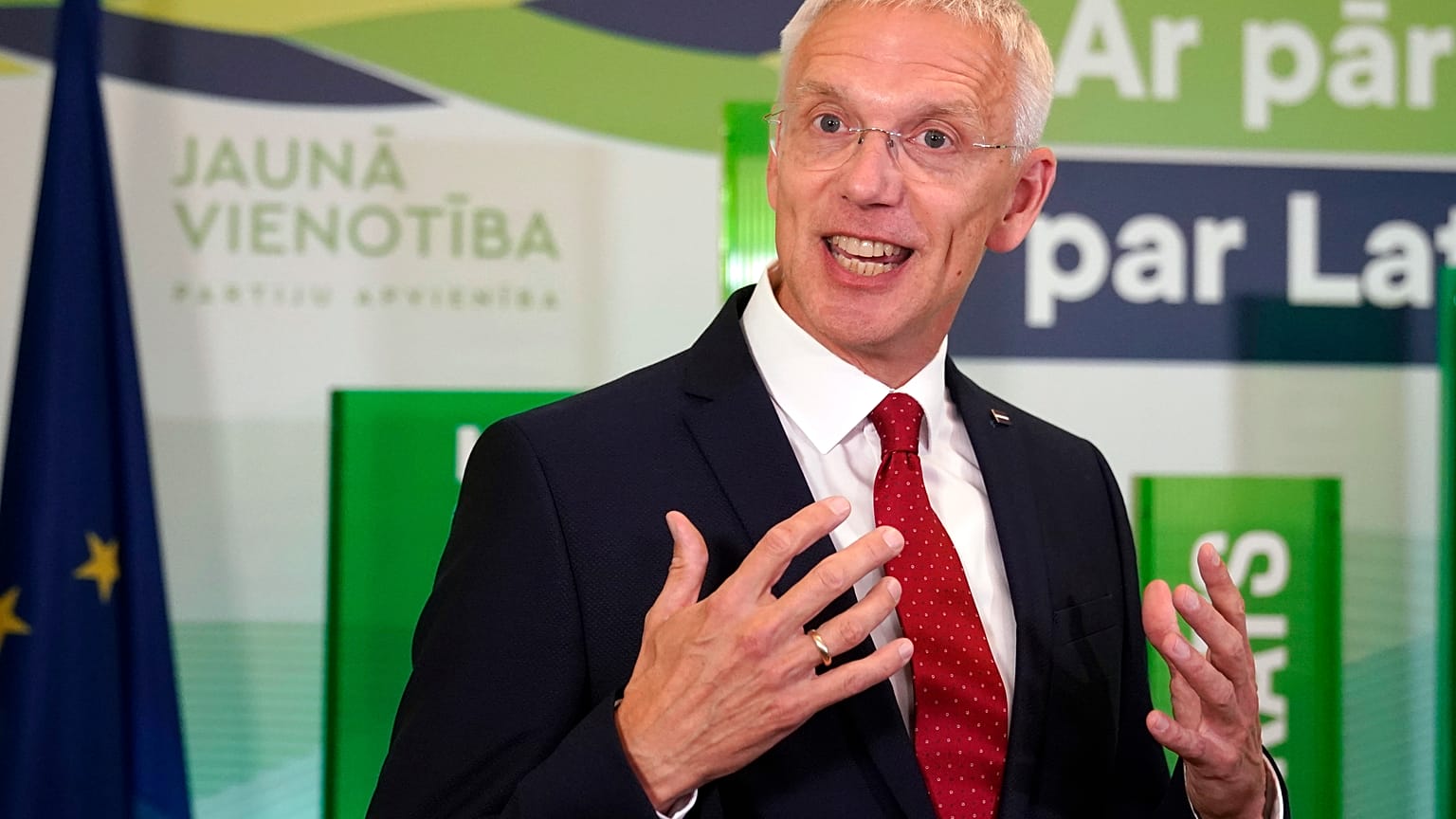Krišjānis Kariņš, a strong critic of Vladimir Putin, is favourite to head another coalition government after his New Unity party won 19% of the vote with almost all ballots counted.
Latvia's ruling centre-right party won the most votes in the country's general election, centrist parties were the runners-up and pro-Moscow parties crashed in a vote that was shaped by Russia’s war in Ukraine, according to results published on Sunday.
 ADVERTISEMENT
ADVERTISEMENT
 ADVERTISEMENT
ADVERTISEMENT
With over 99% of the votes counted, Prime Minister Krišjānis Kariņš’ New Unity party had captured 19% support, while the opposition Greens and Farmers Union was second with 12.5% and the new centrist electoral alliance United List — made up of several regional parties — was third with 10.9%.
The results put Kariņš in a strong position to head another coalition government, and mean Latvia should remain a leading voice alongside its Baltic neighbours Lithuania and Estonia in pushing the European Union for a decisive stance against Russia.
Only eight parties or electoral alliances passed the five percent barrier to win parliamentary seats. The centre-right National Alliance and the centrist Development/For!, which are both members in Kariņš' current minority coalition government, are among them.
None of the parties catering to Latvia’s ethnic Russian minority, which makes up more than 25% of the country’s 1.9 million people, managed to secure a seat in parliament.
Kariņš, a 57-year-old dual Latvian-US citizen, said earlier that it would be easiest to continue with the same coalition government if his party won.
"First and foremost on everyone's minds is how we all get through the winter, not only in Latvia but throughout the EU, and that we all remain united behind Ukraine, and do not waiver in the face of difficulties for us," he said earlier.
"People voted for experienced political force with a clear Euro-Atlantic course, which can deal and lead a country in this complicated situation," Valdis Dombrovskis, executive vice president of the European Commission and a former Latvian prime minister, told New Unity supporters in the capital Riga.
Kariņš' policy towards Moscow has included restricting the entry of Russian citizens travelling from Russia and Belarus.
But his victory could widen a rift between the country's Latvian majority and its Russian-speaking minority over their place in society, amid widespread national anger over Moscow's actions in Ukraine.
Saturday's election was a blow particularly for Harmony, a Moscow-friendly party that traditionally served as an umbrella for most of Latvia’s Russian-speaking voters, including Belarusians and Ukrainians.
Harmony received a mere 4.8% of votes in comparison to the 2018 election, when it garnered almost 20% of the vote, the most of any single party, but was excluded by other parties from entering the government.
Russia’s invasion of Ukraine on Feb. 24 had a substantial effect on voter attitudes, observers say, and resulted in a deep division between Russian-speakers opposing the war and those supporting it. Latvia's economic situation, including soaring energy prices, was the main election issue.
Initial voter turnout was 59.4%, the Central Election Committee said, higher than the 2018 election.














